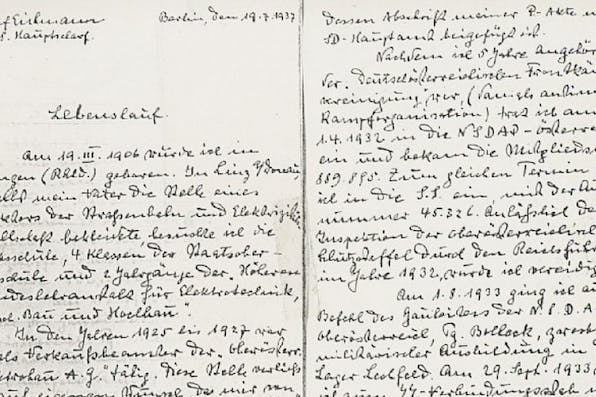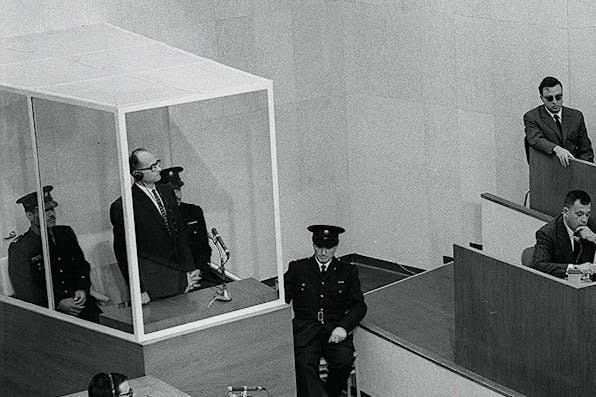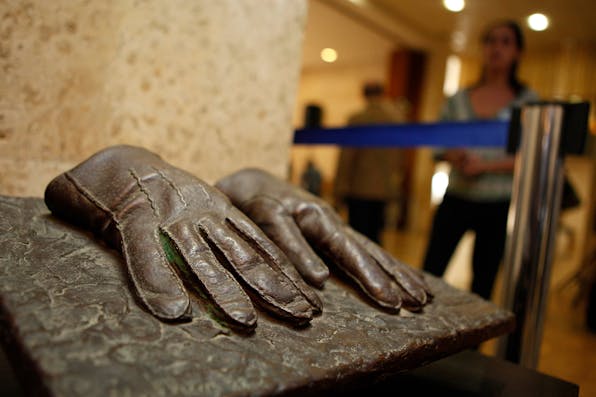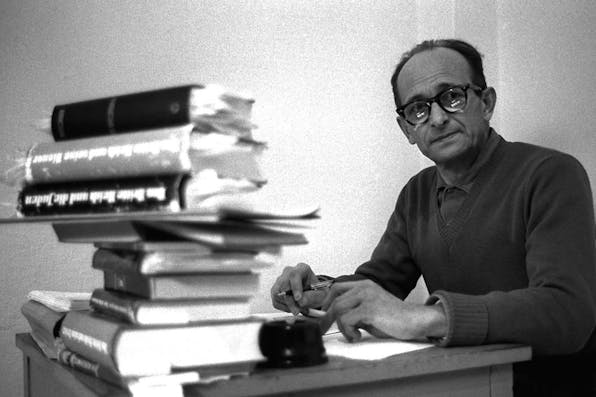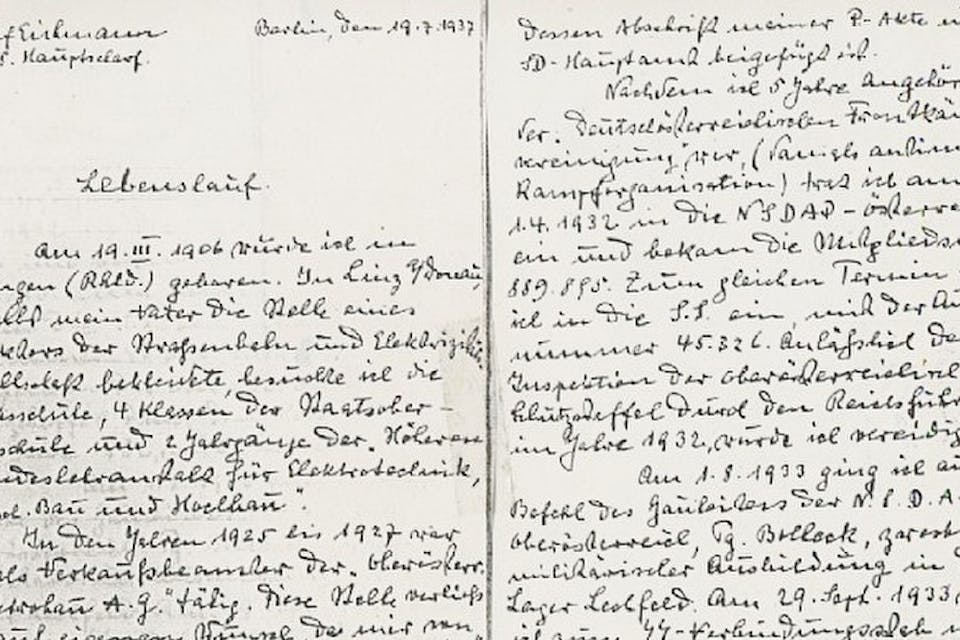
June 8, 2020
Where Arendt Was Right on Eichmann
To understand Eichmann, you have to see not his "banality" but how innovative and utterly committed he was as a bureaucrat.
It’s hard to argue with Martin Kramer’s essay on the 60th anniversary of Israel’s capture of Adolf Eichmann. “The Truth of the Capture of Adolf Eichmann” shows how his image has morphed from diabolical Nazi to the charming fellow portrayed by Ben Kingsley in the Hollywood film Operation Finale (2018). And in the course of that telling, Kramer explains how clashes of ego among elderly ex-Mossad memoirists furnished Hollywood with the materials it needed to transform our culture’s shared memory of Eichmann. Sadly, he’s probably right that these quarreling former colleagues are not blameless for mischaracterizations of Eichmann.
Kramer’s essay elicits a minor comment about the Mossad, and a substantial one about Eichmann and his most enduring portraitist, Hannah Arendt.
Let me dispatch with the former comment about Israeli intelligence. The earliest memoir of Eichmann’s kidnapping was by Isser Harel, Israel’s mythological spy master. According to recently declassified transcripts of the Security Cabinet, a select group of cabinet ministers repeatedly found time to block publication of his book, even in 1967, when they really had more pressing matters. The ministers earnestly believed that spooks should remain eternally in the shadows. Today’s spies agree, which is why whenever the Law of Archives threatens to force them to open old files, they get an exemption. As Kramer mentions, Harel needed to mount a lengthy legal battle in order to win the right to publish his version of Eichmann’s hijacking.
